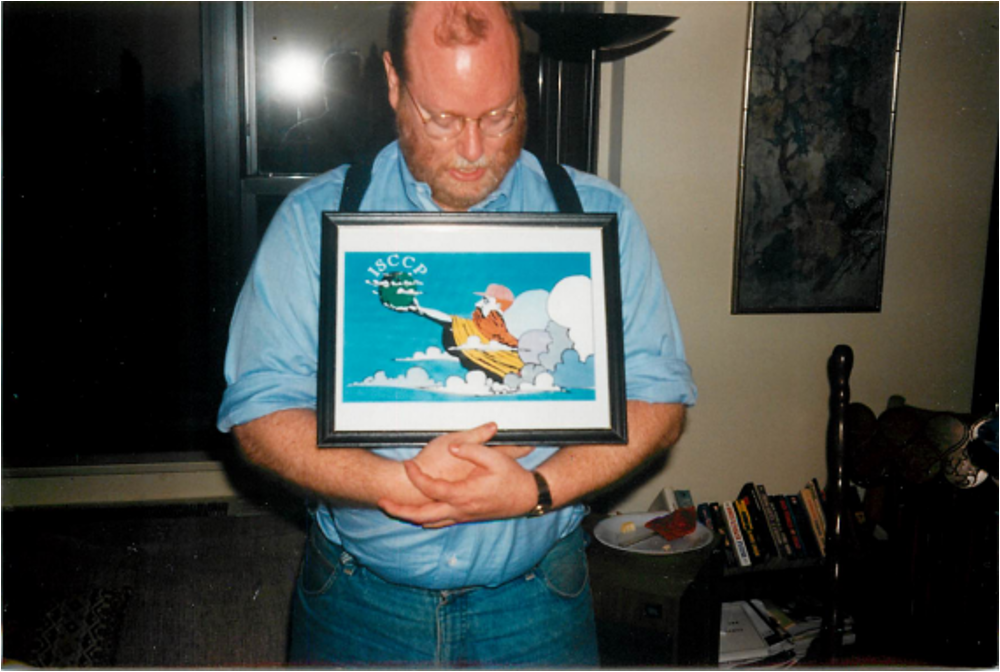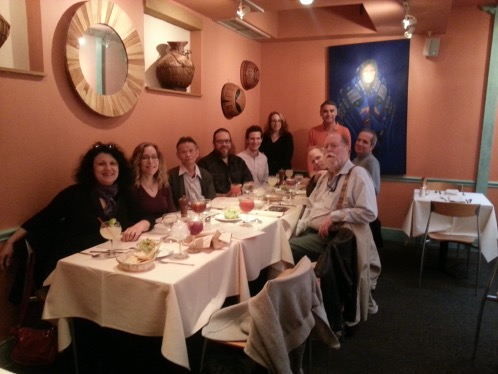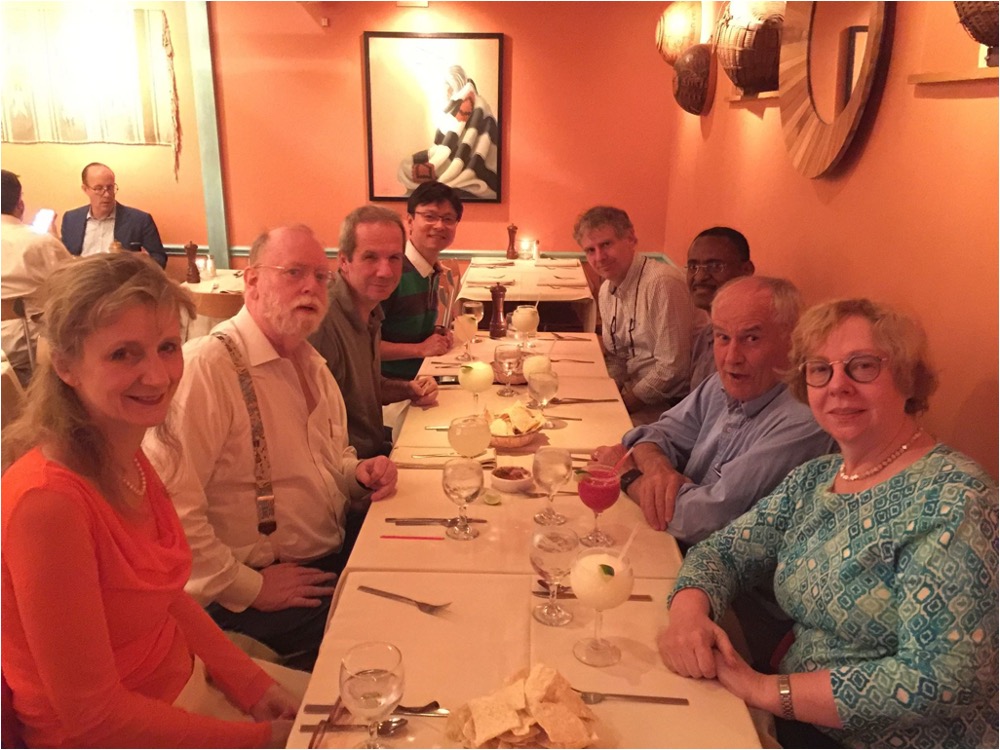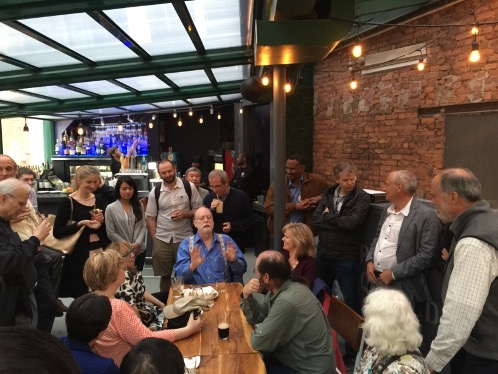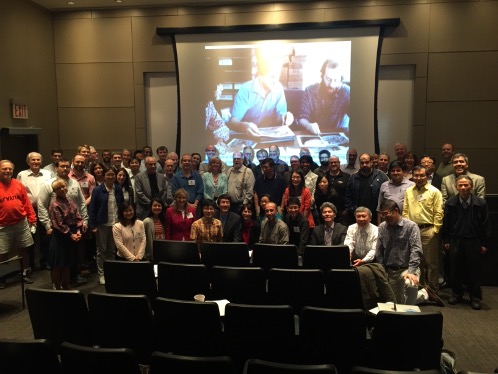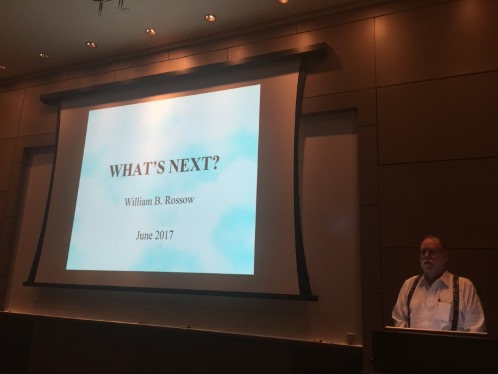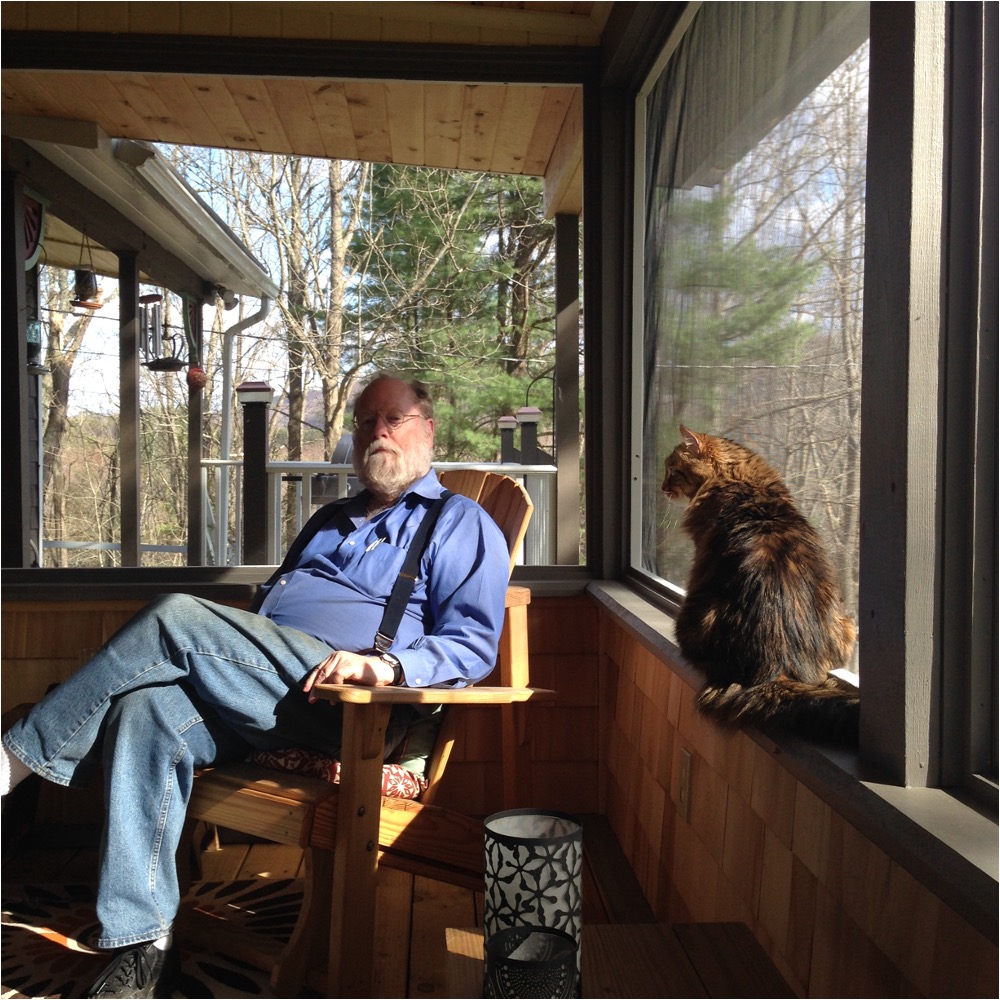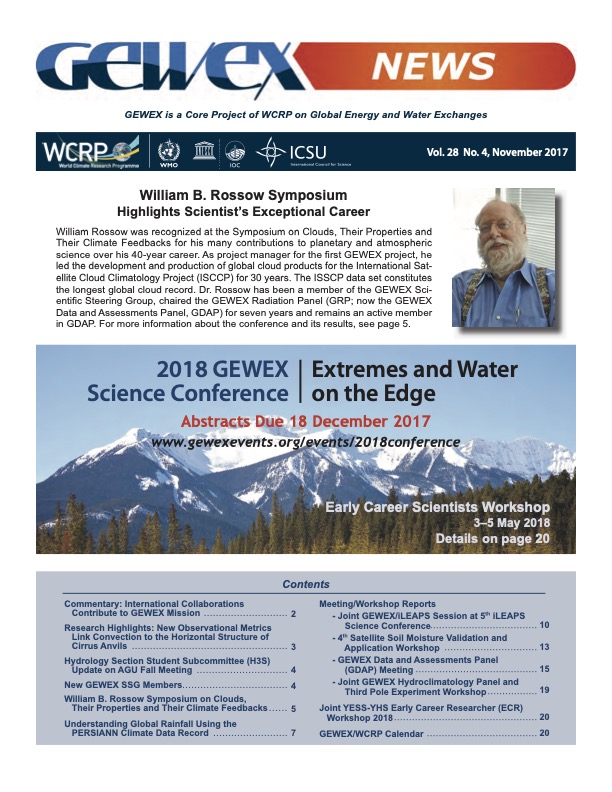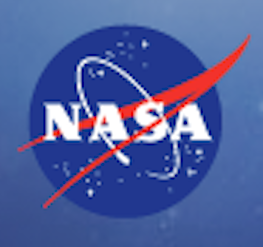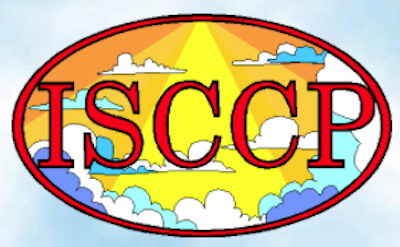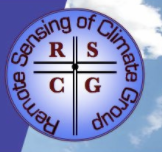
CLOUDS, THEIR PROPERTIES, AND THEIR CLIMATE FEEDBACKS
What have we learned in the satellite era?
A symposium celebrating William B. Rossow’s science contributions and retirement
June 6-8, 2017
Columbia University, New York, N.Y.
The NASA Goddard Institute for Space Studies, CCNY/CREST, and Columbia University organized a scientific symposium with the overall theme of “Clouds, their Properties, and their Climate Feedbacks”. The motivation for the symposium is the recent retirement of William B. Rossow, after 40 years of exceptional contributions in a wide range of planetary and atmospheric science fields. The objective of the symposium is to stimulate discussion on the progress we have made over the past decades in understanding cloud properties, processes, and feedbacks, and to explore strategies to tackle the issues that remain unresolved. The symposium will take place over a 3-day period at the Davies Auditorium of the Schapiro Hall, Columbia University. It will consist of oral and, if needed, poster presentations as well as extensive discussion sessions. To submit a contribution to the symposium, please send a 1-page abstract to George Tselioudis (George.tselioudis@nasa.gov) and Johnny Luo (zluo@ccny.cuny.edu) by January 27, 2017.
Agenda
11:00 Session B: Clouds and Climate Processes (Chair: Johnny Luo, Rapporteur: Hanii Takahashi)
11:00-11:15 Christian Jakob: Radiative-Convective Anti-Equilibrium — The Truth about the relationship of rainfall and radiation
11:15-11:30 Hui Su: “Iris Effect” in Observations and Models
11:30-11:45 Chris Kummerow: Tracking the Movement of Water and Energy from the GEWEX Integrated Product
11:45-12:00 Yi Huang: Cloud feedback during ENSO
12:00-12:15 Tom Ackerman: A Possible Strategy for the Use of Solar Climate Engineering
12:15-12:30 Discussion
12:30 Lunch
2:00 Session B: Clouds and Climate Processes (continued)
2:00-2:15 Mark Zelinka: Assessing the robustness and mechanisms of cloud responses to poleward jet shifts in observations and models
2:15-2:30 Ying Li: Two-way interactions between cloud radiative effects and the atmospheric circulation in the extratropics
2:30-2:45 Bernard Lipat, George Tselioudis, and Lorenzo Polvani: Midlatitude cloud shifts, their primary link to the Hadley cell, and their diverse radiative effect
2:45-3:00 Kevin Grise: Dynamic and thermodynamic controls on midlatitude clouds: What can the observed satellite record teach us?
3:00-3:15 Xianglei Huang: Spectral Decomposition of Cloud Radiative Effect and short-term Cloud Radiative Feedbacks
3:15-3:30 Discussion
3:30 Coffee Break
4:00 Session B: Clouds and Climate Processes (continued)
4:00-4:15 Leo Donner: Cloud Updrafts, Climate Forcing, and Climate Sensitivity
4:15-4:30 Katinka Bellomo: Observational and Model Estimates of Cloud Amount Feedback over the Indian and Pacific Oceans
4:30-4:45 Alejandro Bodas-Salcedo: Cloud liquid water path and radiative feedbacks over the Southern Ocean
4:45-5:00 Dave Winker: A Role for Active Sensors in Constraining Cloud Feedbacks
5:00-5:15 Claudia Stubenrauch: The role of upper tropospheric cloud systems in climate: building observational metrics for Process Evaluation Studies
5:15-5:30 Discussion
6:00 Symposium Reception (courtesy of the CUNY CREST Institute)
9:00 Session C: New Datasets and Retrieval Methods
(Chair: Claudia Stubenrauch, Rapporteur: June Wang)
9:00-9:15 Alisa Young: ISCCP H-Series Data production at NCEI
9:15-9:30 Yuanchong Zhang: The New Long-term, Global, 3-hourly, high-resolution ISCCP-FH Atmospheric Radiative Transfer Flux Profile Product
9:30-9:45 Toshi Inoue: Cirrus cloud observed from Himawari-8
9:45-10:00 Kaori Sato: Cloud observations from the Arcs and EarthCARE project
10:00-10:15 Hajime Okamoto: From CloudSat-CALIPSO to EarthCARE and new ground-based instruments
10:15-10:30 Discussion
10:30 Coffee Break
11:00 Session C: New Datasets and Retrieval Methods (continued)
11:00-11:15 Steve Schwartz: Cloud radiative fraction: Determination by high resolution photography from the surface looking upward
11:15-11:30 Tamas Varnai: Deep space observations of oriented ice crystals and of the color of our planet
11:30-11:45 Andrew Lacis: Efficient computation of the radiative effects of fractional cloudiness in a climate GCM setting
11:45-12:00 Michael Mishchenko: Fluctuational QED theory of radiative transfer in clouds
12:00-12:15 Erhard Raschke: On the influence of ancillary information on estimates of the Earth’s radiation budget
12:15-12:30 Discussion
12:30 Lunch
2:00 Session D: Clouds, Radiation, and Microphysics
(Chair: George Tselioudis, Rapporteur: Bernard Lipat)
2:00-2:15 Paul Stackhouse: The Effect of Clouds on Surface Radiation: Contributions of Global ISCCP-based Surface Radiation Toward Establishing Relationships, Narrowing Uncertainties and Fostering Interdisciplinary Application
2:15-2:30 Carol Anne Clayson: Relationships between ocean-atmosphere surface heat and moisture fluxes, clouds, and weather regimes
2:30-2:45 Anastasia Romanou and Rebecca Latto: Ocean carbon-climate states based on cluster analysis of air-sea carbon fluxes and ocean color satellite measurements
2:45-3:00 Hamid Norouzi: Surface Energy Balance Study and Temporal and Spatial Downscaling of Surface Temperature in Urban Area
3:00-3:15 Tristan L’Ecuyer: Revisiting the Role of Cloud Type in the Global Energy Budget
3:15-3:30 Discussion
3:30 Coffee Break
4:00 Session D: Clouds, Radiative budget, and Microphysical Scales (continued)
4:00-4:15 Stefan Kinne: Global distributions of aerosol optical properties
4:15-4:30 Jonathan Jiang: Impacts of Different Aerosol Types on Convective Cloud as Observed by CALIPSO/CloudSat Satellites
4:30-4:45 Zhanqing Li: Joint Impact of Aerosol-Radiation-Interaction (ARI) and Aerosol-Cloud-Interactions (ACI) on Convective Clouds, Lightning and Thunderstorms
4:45-5:00 Luiz Machado: Tropical Cloud Process and sensitivities to environmental conditions
5:00-5:15 Matt Igel: The Modeled and Observed Dependence of Precipitation Onset and Cloud Type on Layer-Moisture
5:15-5:30 Discussion
9:00 Session E: Clouds at Weather Scales
(Chair: Christian Jakob, Rapporteur: Jackson Tan)
9:00-9:15 Ademe Mekonnen: The Interaction Between Cloud Regimes and Easterly Wave Activity over Africa: Convective Transitions And Mechanisms
9:15-9:30 Brian Vant-Hull: Global Tracking of Meso-Scale Convective Systems
9:30-9:45 Greg Elsaesser: Fusing Multiple Satellite Datasets to Define and Understand Organized Convection
9:45-10:00 Tony Del Genio: Toward the Representation of the Convective Lifecycle in Climate Models
10:00-10:15 Mitch Moncrieff: Multiscale Coherent Structure Parameterization (MCSP) for Organized Tropical Convection
10:15-10:30 Discussion
10:30 Coffee Break
11:00 Session E: Clouds at Weather Scales (Continued)
11:00-11:15 Hanii Takahashi: Level of Neutral Buoyancy, Deep Convective Outflow and Convective Core: New Perspectives Based on 5-Years of CloudSat Data
11:15-11:30 Lazaros Oreopoulos: ISCCP Weather States and MODIS Cloud Regimes: Organizing passive cloud observations for understanding the nature of global cloudiness
11:30-11:45 Qiang Fu: Variability of Tropical Tropopause Layer Cirrus
11:45-12:00 Ulrich Schumann: Do cirrus clouds cool or warm the Earth surface?
12:00-12:30 Discussion
12:30 Lunch
2:00 Session E: Clouds at Weather Scales (Continued)
2:00-2:15 Brian Kahn: Low-latitude variability of ice cloud properties and cloud thermodynamic phase observed by the Atmospheric Infrared Sounder (AIRS)
2:15-2:30 Roger Marchand: An Overview of MISR Cloud-Top-Heights and Optical Depth Histograms
2:30-2:45 Zhien Wang: Global Cloud Type Distributions: ISCCP Cloud Type to CloudSat Type
2:45-3:00 Jackson Tan: Evaluating Rainfall Errors in Global Climate Models through Cloud Regimes
3:00-3:15 Steve Ackerman: Cloud detection from Satellites: What I learned from Bill Rossow
3:15-3:30 Discussion
3:30 Coffee Break
4:00 Session E: Clouds at Weather Scales (Continued)
4:00-4:15 Catherine Naud: A Climatology of Clouds and Precipitation in Extratropical Cyclones based on Satellite Observations
4:15-4:30 Jimmy Booth: Cloud and Water Vapor Conditions over the Ocean Western Boundary Currents during Winter
4:30-4:45 Junhong (June) Wang: Diurnal cycle of clouds from satellite data and climate models
4:45-5:00 Ulrika Willen: ENSO variability in multiple satellite observations and climate models
5:00-5:15 Kanhu Charan Pattnayak: Investigation of the Moisture Recycling Ratio over South America: A Modelling Approach using HadCM3
5:15-5:30 Discussion
5:30 Conference Recap
5:30-6:00 William Rossow: What’s Next?
GEWEX NEWS
Rossow Symposium Pictures
New York (City College of New York,
NASA Goddard Institute for Space Studies)
6-8 June 2017
